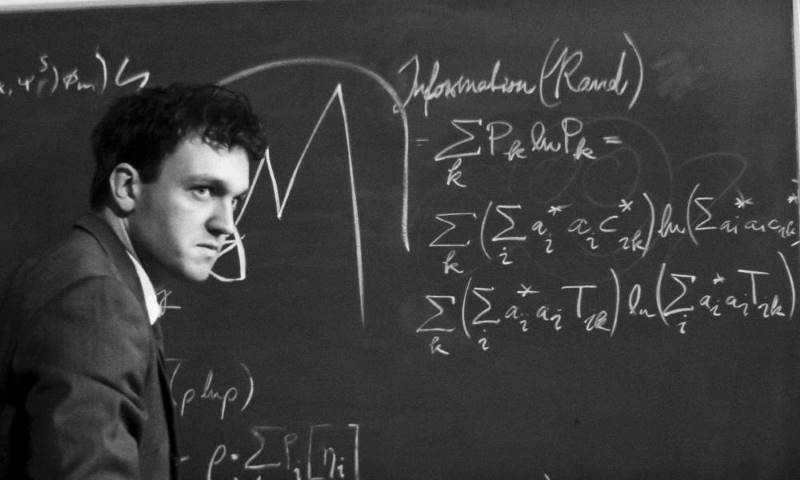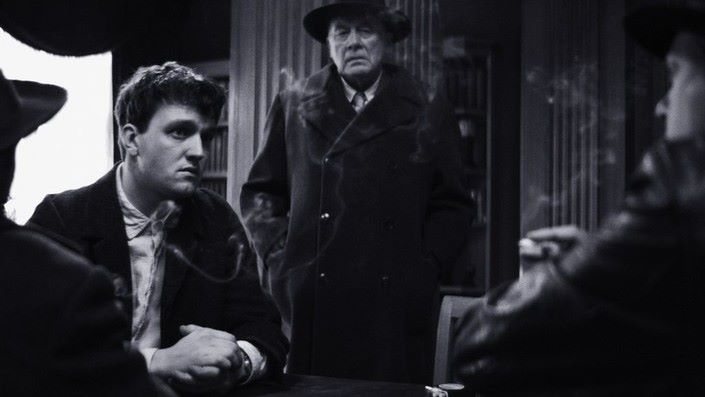The Universal Theory
15There have been a number of examples in cinema of the multiverse as a concept, such as 1993’s Groundhog Day and The Matrix franchise, but it’s safe to say that it was Marvel that brought it into the mainstream with the liberal use of it in the storylines for their superheroes.
This German film also uses the multiverse, but its approach is about as far as you can get from The Avengers and co.

guys, we've been over this before. the answer is sausage!
Student physicist Johannes (Jan Bülow) is off to a congress in the Swiss Alps with his professor Dr Julius Strathen (Hanns Zischler). He’s been working on a theory that he hopes to present to the group, but his professor doesn’t think it’s up to much.
He does get some encouragement from another professor however, that gives him heart.
But the longer he stays, the more he starts to notice unusual goings-on, including a number of suspicious deaths. Is there more to this quaint Alpine destination than meets the eye?

So you see, because I said bagsy you, it means dear friend you are 'it'.
Shot for the majority in stunning black and white, German director Timm Kröger’s film is a quirky and surreal effort, with a heavy dose of film noir thrown in for good measure.
The cinematography is borderline spectacular, but that is with the snowy, mountainous locale doing a lot of the heavy lifting.
Where it loses its way is with its story; it’s the type of film that has a nugget of a good idea in there somewhere, but it’s all too often wrapped up in a narrative that most certainly drags its heels throughout. There’s an art to pacing and it’s one that Kröger just hasn’t got the handle of just yet.
There are too many scenes of characters looking pensive, and not much else, with the film struggling to produce any kind of momentum.
And when we get close to what’s going on, it’s all rather disappointingly vague, leaving with far too many unanswered questions.
There’s no deny it looks good though, it’s just a shame there wasn’t just a bit more substance to it all, to make it more worthwhile.
